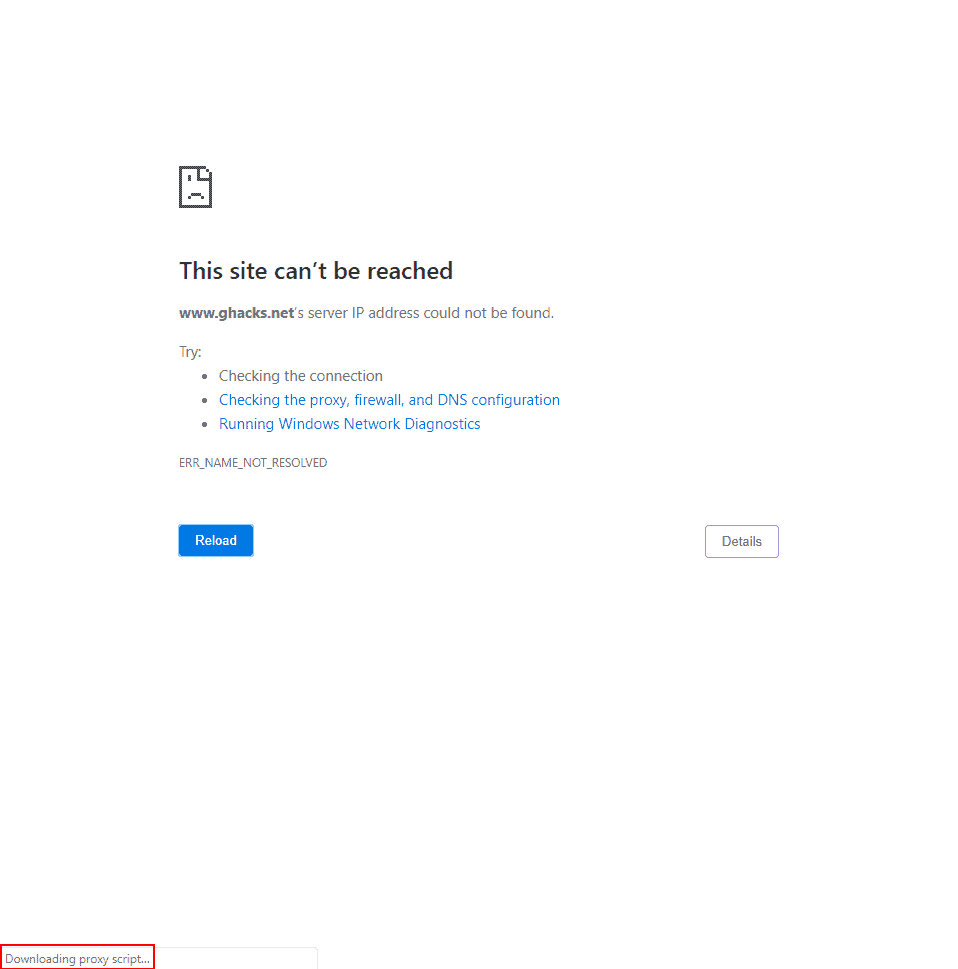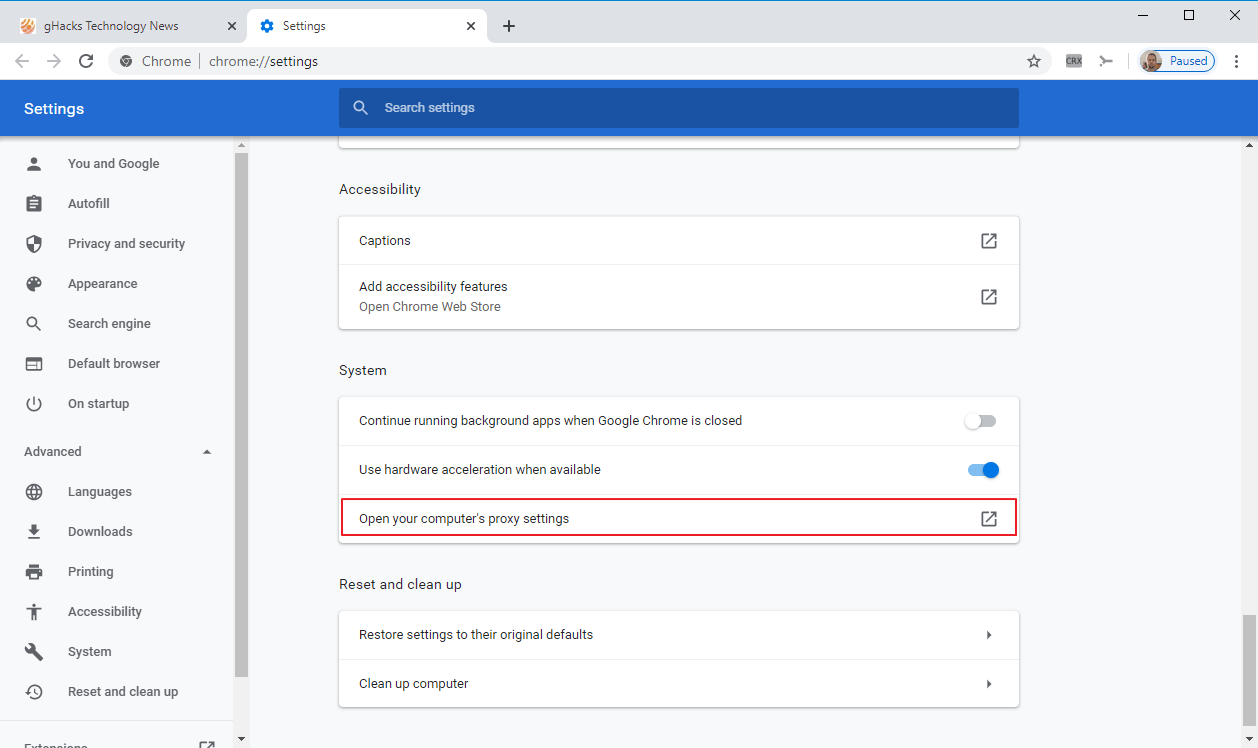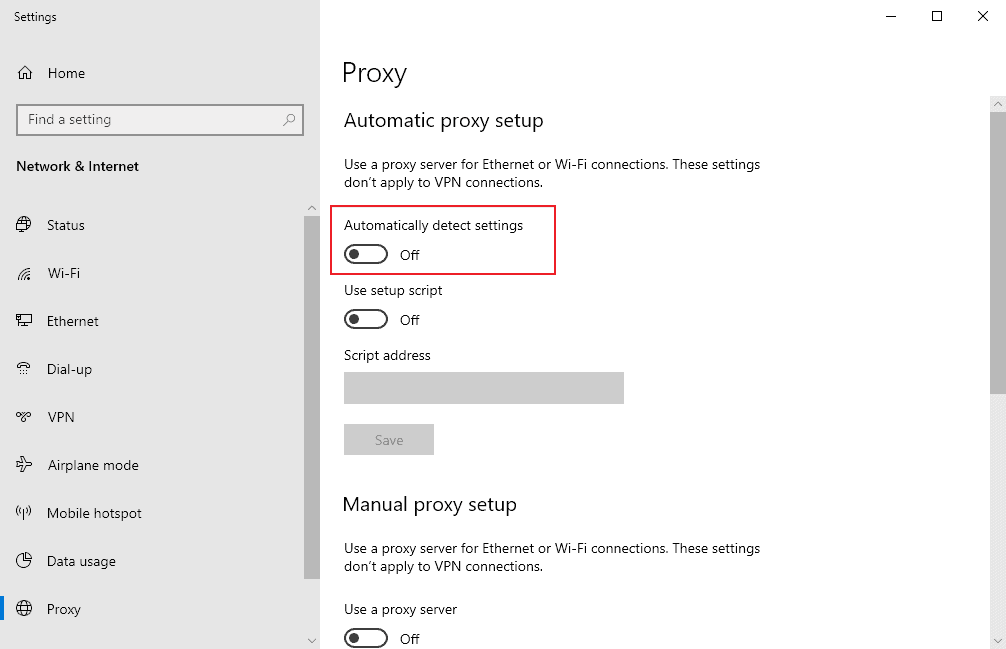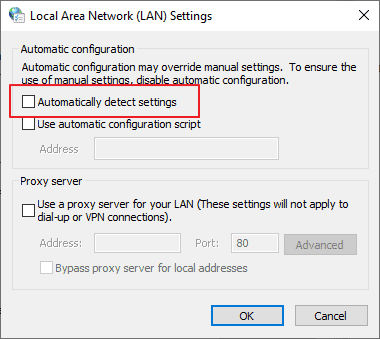How to deal with Chrome's "downloading proxy script" message

The message "downloading proxy script" may be displayed by Google Chrome. If you see it frequently, you may want to know why the message is displayed by the browser and what you can do about it.
You may see the message when Internet connectivity changes, e.g. when you connect to a different Wi-Fi network or if other connectivity parameters change. Chrome may appear to take longer than usually to display sites and the downloading of the proxy script may take a few seconds to complete.

In many corporate environments, proxy servers are used. Web browsers and many operating systems, including Windows, take this into account and use automatic configurations to determine whether a proxy server is used in the environment.
At home, proxy servers are usually not used but browsers are still configured to check whether proxy servers are used. Google Chrome's "download proxy script" message is caused by the default configuration.
Chrome users who are certain that no proxy is used may disable the automatic detection to do away with the downloading proxy script message in the browser. Here is how that is done:
- Load chrome://settings/ in the Chrome browser's address bar.
- Scroll down and select Advanced to display advanced configuration options.
- Scroll down to the System section.
- Click on "Open your computer's proxy settings".

The operating system determines which control panel gets opened. On Windows 10, the Proxy page of the Settings application is opened.
- Locate the "automatically detect settings" toggle on the page.
- Set it to off.

The Internet Options may be opened instead if the device uses an older version of Windows.If that is the case, click on "LAN Settings" and remove the checkmark next to "Automatically detect settings" on the page that opens.

Once disabled, Chrome should no longer display the downloading proxy script message; this should not have any negative effects if no proxy server is used.
Now You: Is Chrome trying to download proxy scripts on your systems?



















It works on Edge as well, thanks
I have seen that Chrome in my system have a size of 362 Mb (with no cache), just pure installation. I meant, wtf, 362 Mb just to read Ghacks are more or less too much Mb imho, aren’t they? :[
The pure installation is 193 mb, it’s even less than chromium…
The 200 mb of these 362 Mb you see are the installer files, they keep the setup files for restoring reasons.
You can delete the setup files if you don’t want them.
Here Chromium v81.0.4044.129 is 197 MiB.
What is the purpose of these “scripts”?
Connection to a proxy is usually done at a system level. Why is the browser detecting this and making it’s own changes?
Some larger enterprises and organizations can have a complex proxy deployment where certain sites or routes are served by specific proxies or no proxies at all.
In such a case, the feature to automatically detect proxy settings is often used to fetch a Proxy Auto Config (PAC) file as part of the WPAD protocol in order to make a real-time determination whether a specific web request should be handled by a given proxy.
Its chromes continuation on merging the os and browser for more s̶p̶y̶i̶n̶g̶ convenience.